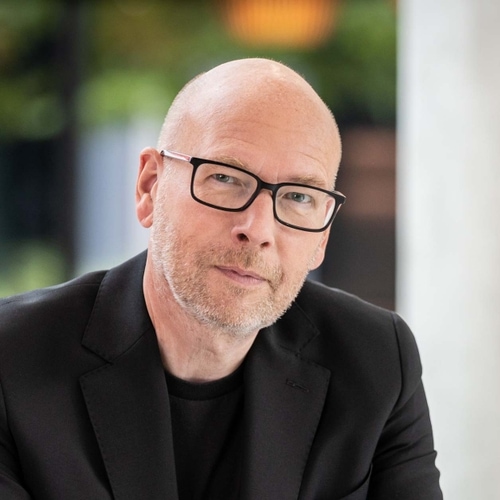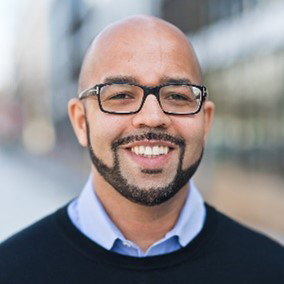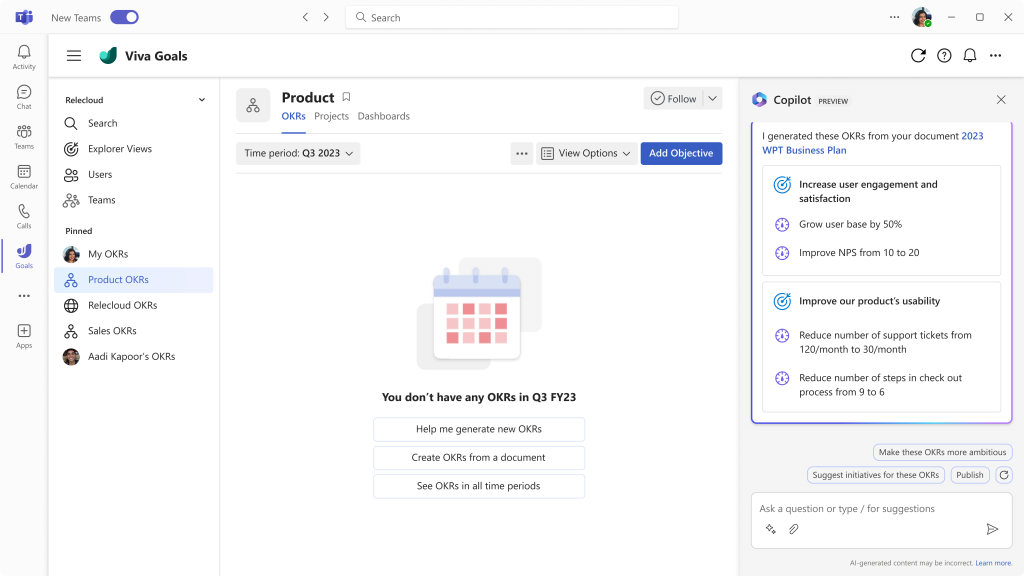- June 5, 2023
- Posted by: Die Redaktion
- Category: BEST PRACTICES
OKRs – Objectives and Key Results – invented as early as the late 1970s by Andy Grove at Intel, formalized by John Doerr and introduced and led to success at Google, have since then and increasingly been considered the first choice when it comes to setting goals for the organization and all stakeholders. OKRs were also introduced in Microsoft Communications in 2022/23. Responsible for this: Microsoft EMEA Head of Communications, Benjamin Lampe.

Thomas Mickeleit: Without goals and without measuring the achievement of goals, there can be no strategic communication. How can OKRs help make communication more strategic?

Benjamin Lampe: The basic idea of OKRs – Objectives and Key Results – is quickly explained. What do we want to focus on in communication and become the most time and energy? This is an important question that is often asked, but rarely answered well. Many communicators are not only completely overburdened with the demands of digital transformation, employee retention in hybrid forms of work, and day-to-day business, but often permanently overburdened as well. That’s where OKRs help as an important framework. One is to coordinate with stakeholders outside of communications. How do we pay toward the company’s goals? Secondly, also to show the limited budgets of time and energy. With OKRs, you ask yourself the question: what do we want to do to pay attention to the company’s goals and how do we want to do it. The WHAT is the Objective, which is the long-term goal. The HOW is defined by the various measurable Key Results. For us, every Key Result should include a number that is objectively measurable, realistic, but also challenging.

Thomas Mickeleit: OKRs have been introduced in Microsoft Communications in recent months. What are the biggest hurdles in such a project?

Benjamin Lampe: We introduced OKRs for our global communications in the last fiscal year. To do this, we set up a virtual team that worked on the framework for communication at Microsoft and then also went out to the individual teams to present the project and also give hands on workshops.
An important feature of OKRs is that they are transparent. Everyone in the organization can see them. We drink our own champagne here, as they say in English, and use Viva Goals, which is part of our Modern Work solutions.
This also shows where most of the challenges lie. It’s about learning new habits as an organization and that goes hand in hand with culture change. My team sees my OKRs and I share them openly as well. At the end of the quarter, we have a review in which we calmly look at what worked, what didn’t and what we want to learn from it. By the way, the whole thing is not linked to bonuses, because we want our teams to take on great challenges, try new things and share their learnings openly. If you tie that directly to bonuses, it doesn’t work.

Thomas Mickeleit: What role does technology #CommTech play in the introduction of OKRs. With Viva Goals, Microsoft has an application integrated with Microsoft Teams. What is the concrete benefit of managing OKRs with Viva Goals?


Benjamin Lampe: The right tools are very important. OKRs are transparent and we do that with Viva Goals because everyone should be able to see the OKRs of their colleagues and get inspired that way as well. In our case, it’s part of the Viva Suite and you don’t need a separate log-in or IT support, and in the future we’ll also add a co-pilot with artificial intelligence.
Then you look at OKRs regularly and do a “check in” to record progress and take countermeasures if necessary when a project has fallen behind.
At the end of the quarter, we do a review as a team and that also goes centrally through Viva Goals. In each case, the team lead has an overview of how the OKRs are progressing in the organization. Some colleagues have already started to structure their coverage reports and analyses based on their OKRs.

Thomas Mickeleit: What have you learned from the implementation at Microsoft? What is the measure of success?

Benjamin Lampe: OKRs help in the coordination with stakeholders. A colleague I hold in high regard once said to me, “Ben, I understand that successful communication is art and science. But we hardly ever talk about the science part”. That was very fair and OKRs pick up on that. At the same time, they also help every employee in communications see how their daily work contributes to the company’s mission and “purpose” and not get distracted by other issues.
I was personally surprised by the great influence OKRs have on transparency and collaboration. I gave a workshop and struggled a bit with whether to share my OKRs, even though they weren’t ready yet. At one time, almost all of the participants shared their own drafts with the group, thanking them for feedback and inspiration. Sharing with other regions has increased a lot and that’s great, of course.
As is so often the case in the transformation process, the leader leads by example. Leaders should develop and share their own OKRs. Imposing it on others, not doing it yourself, cannot be crowned with success.
Understanding the concept of OKRs is quick. Implementing it takes a bit of practice. Some time ago I ordered a pizza stone to make my own pizza with my daughter. Theory was quickly understood, but then getting the topped pizza on the hot stone quickly and correctly took some practice. V1 was difficult. V4 already looked really good. It is the same with OKRs. You start a great learning process in the company and you learn from and with each other.

Thomas Mickeleit: What advice can you give to communications managers who are considering working with OKRs. How should such a project be set up?

Benjamin Lampe: It helped me a lot that colleagues from other companies were very willing to share their learnings. That was great and helped me a lot. I like to pass that on and talk about it with others.
Then it was important to set up a global virtual team that took into account different areas of communication and also different cultures at an early stage. Our framework has some global specifications and much can be decided locally. You have to define that and think it through well.
Progress over Perfection. Our discipline is often somewhat characterized by the fact that we have not yet really solved the issue of success measurement in a sustainable way. Don’t be put off by this. It’s not about developing the perfect model on the first try, but about jointly developing a flexible framework that creates a working environment in which communicators can do their best work through transparency, clarity and challenging goals.
